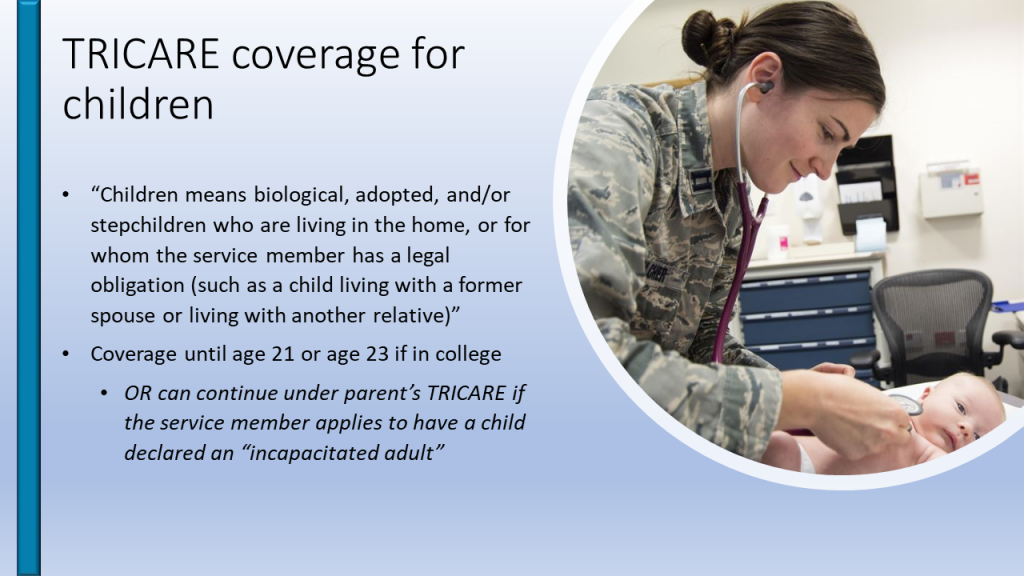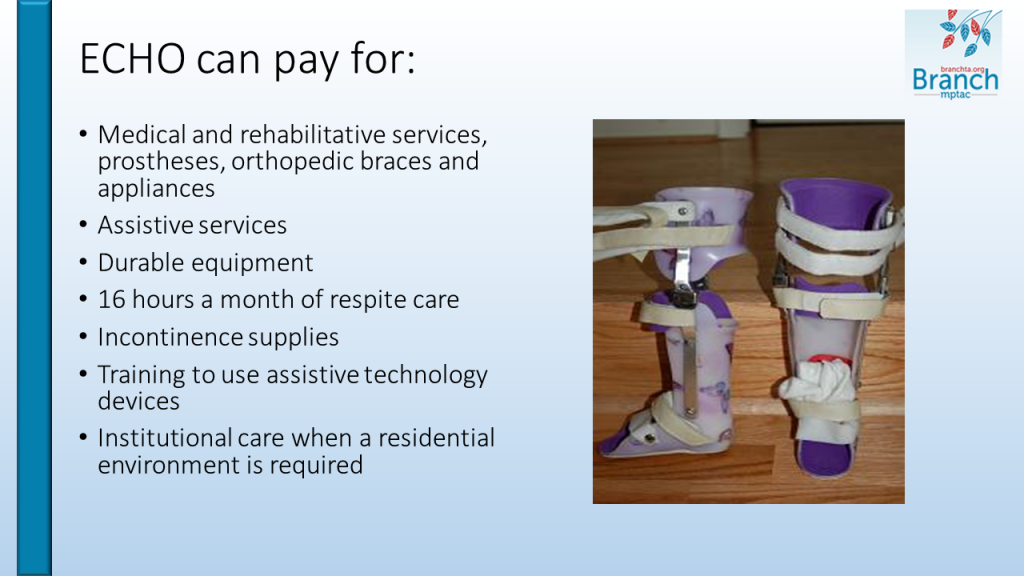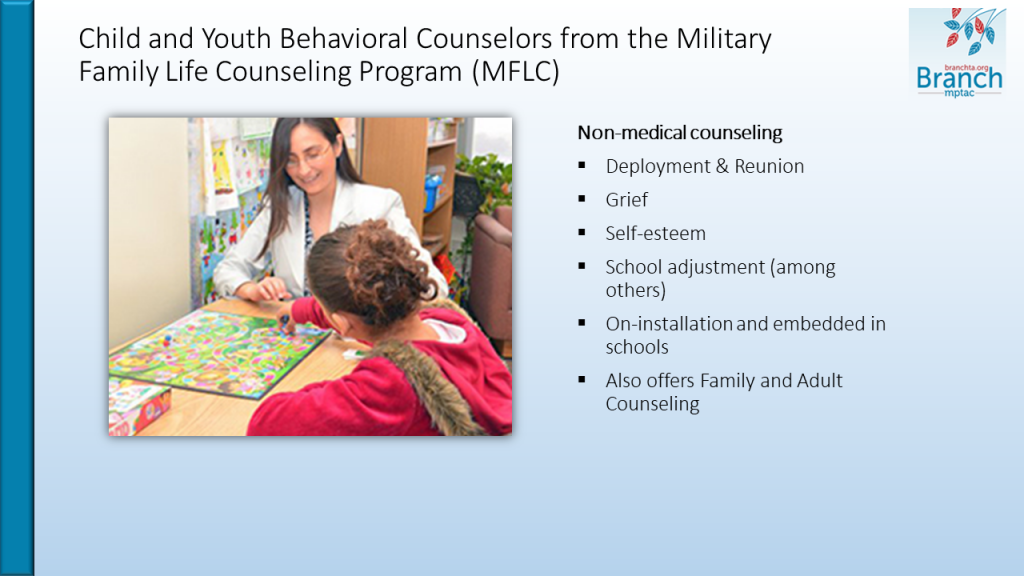Most National Guard members are part-time military and receive civilian services when their child has a disability. They might not identify themselves as National Guard families to Parent Center staff. Sometimes they don’t know about military benefits that could help their situation. These four tips will help you direct families to all the resources for which they are eligible.
- Ask parents if they and/or their spouse are a member of the military.
- Refer the family to the benefit guide for National Guard families at Military OneSource: https://www.militaryonesource.mil/national-guard/national-guard-family-program/benefits-guide
Benefit examples:
Example 1: A National Guard family has a child with Autism Spectrum Disorder who is receiving Applied Behavioral Analysis (ABA) therapy. The family is paying out-of-pocket for ABA. If they were getting medical care through TRICARE, their child’s therapy would be covered under the TRICARE Autism Demonstration Project with minimal cost-shares.
When Guard members join, they and their families are encouraged to compare civilian health care benefits with TRICARE plans for National Guard members to make decisions about their coverage. Reserve plans carry a premium and some National Guard families decide to go with civilian employer-paid health coverage. They may not revisit that decision, even when family circumstances change (such as having a baby who later requires ABA therapy).
Example 2: Another family has been on a Home and Community-Based Services (HCBS) Waiver waiting list for some time to receive respite care for their home bound child. They may not know that if their military family member is activated, they can enroll in the Exceptional Family Member Program, join a TRICARE plan and apply for TRICARE Extended Care Health Option (ECHO). ECHO offers up to 40 hours per month of respite care through its Home Health Care program in addition to other benefits. This can be a lifesaver for the non-deployed parent.
- Refer them to the Family Assistance Coordinator in their state for referrals to the Exceptional Family Member Program (EFMP) and for assistance with eligibility for TRICARE benefits, such as ABA therapy. Contact and location information for the FACs are on the Interactive Maps.
Benefits differ depending on the service member’s status- whether or not they are on active federal duty. The changes in benefits can be challenging to negotiate. The National Guard provides trained Family Assistance Specialists in every state to help Guard families. The Coordinator at the Family Assistance Center can provide the name and phone numbers for the specialists best placed to help the family. Contact information for your state’s Family Assistance Center is on our Interactive MAPs, by state.
- Connect with the Family Assistance Coordinator in your state so they can refer National Guard families to your parent center. They want to know what Parent Centers can offer and they will help you reach out to National Guard families. Contact and location information for the FACs are on the Interactive Maps.
Information on TRICARE options for National Guard Members and their families is available on our TRICARE videos page, or on the TRICARE National Guard and Reserves page.
Information on TRICARE’s Extended Care Health Option (ECHO)
Customizable handout on military families and Medicaid
In Conclusion:
Once you know a family is with the National Guard it’s easy to refer them to military benefits and assistance using these tips. If you need more information about National Guard family benefits, how benefits change when the service member goes on active duty, or connecting with a Family Assistance Coordinator, feel free to contact us at the Branch: thebranch@wapave.org
Download this article as a Word.docx




